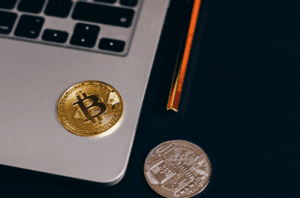Earning a large sum of money, whether through a sudden windfall, a high-paying job, or a successful business venture, can be a transformative experience. However, without careful planning and prudent management, substantial earnings can quickly dissipate. Remember, you can work with Joey Miller New Braunfels and other professionals to avoid many financial blunders. Many individuals make critical financial mistakes that can jeopardize their newfound wealth and long-term financial security. This article explores common financial mistakes people make when they earn large sums of money.
One of the most common mistakes is succumbing to lifestyle inflation. When people start earning more money, they often feel compelled to upgrade their lifestyle by purchasing luxury items, expensive homes, or high-end cars. While it’s natural to desire to enjoy the fruits of your labor, unchecked spending can erode your wealth. It’s important to set a budget, prioritize savings, and make mindful spending choices that align with your long-term financial goals.
A sudden increase in income should prompt the creation of a comprehensive financial plan. Many individuals fail to seek professional advice or create a plan that addresses their financial goals, risk tolerance, and investment strategies. Without a clear plan, it’s easy to make impulsive choices that can have negative long-term consequences. A financial advisor can help you develop a tailored strategy to manage your wealth effectively.
With more money to invest, some individuals may take on excessive risk or invest in complex financial products they don’t fully understand. This can lead to significant losses. Diversification, knowing your risk tolerance, and seeking professional investment advice are key to making sound investment decisions. Avoid the allure of get-rich-quick schemes and focus on building a balanced, diversified portfolio.

Large sums of money often come with significant tax implications. Failing to plan for taxes can result in unexpected liabilities and penalties. It’s crucial to know the tax obligations associated with your income and investments. Working with a tax advisor can help you develop strategies to lessen your tax burden and ensure compliance with tax laws.
While it may be tempting to invest all your newfound wealth or spend it on immediate desires, maintaining an adequate emergency fund is essential. Life is unpredictable, and having a financial cushion can protect you from unforeseen expenses or economic downturns. Set aside three to six months of living costs in a conveniently accessible account.
A significant increase in earnings should be an opportunity to bolster your retirement savings. However, many individuals overlook this critical aspect of financial planning. Maximize contributions to retirement accounts and consider additional retirement savings strategies. Planning for retirement early ensures that you can maintain your lifestyle and financial independence in your later years.
Emotional decisions can cloud judgment and lead to financial missteps. Whether it’s the thrill of a sudden windfall or the pressure to keep up with peers, emotional impulses can result in poor financial choices. It’s important to remain disciplined, take time to evaluate decisions, and consult with financial professionals who can provide objective advice.
Diversifying your income streams by investing in different asset classes, real estate, or business ventures can provide financial stability and reduce risk. This approach can help you maintain your wealth even if one income stream experiences a downturn.
Earning a large sum of money is an opportunity to secure your financial future, but it comes with challenges and responsibilities. Seeking expert advice and developing a comprehensive financial plan are crucial steps in managing your finances effectively. With prudent planning and disciplined financial management, you can make the most of your earnings and achieve long-term financial security.…
Are you tired of paying more than necessary for loans and credit cards? Need more support with the limited options available to you regarding obtaining credit? Or feeling the financial pinch of sky-high insurance premiums? If any of these sound familiar, then you may be experiencing the hidden costs of bad credit. But fear not! There is a solution that could save you money in the long run: investing in credit repair. If you are eager to pursue it, you should first know about Credit Repair Payment Processing. In this blog post, we’ll explore why fixing your credit is worth every penny and how it can help improve your overall financial well-being. So buckle up and get ready to uncover the hidden benefits of repairing your credit score.

Picture this: you’re shopping for a new car, excited about hitting the road in your shiny new wheels. But when it comes time to secure financing, you’re hit with an unpleasant surprise – ridiculously high-interest rates. Why? Because your credit score could be better. Higher interest rates are one of bad credit’s most significant hidden costs. Lenders see borrowers with poor credit as higher-risk individuals and protect themselves by charging higher interest rates. Every loan or credit card you obtain will come with a hefty price tag.
One of the hidden costs of bad credit that is often overlooked is the limited access to credit. When your credit score is low, lenders see you as a risky borrower and may hesitate to extend your credit. This can make it difficult for you to obtain loans or lines of credit when needed. Access to credit is necessary to make large purchases such as a car or home. You may have to settle for less desirable options or pay higher interest rates if you are able to secure financing. Additionally, limited access to credit can hinder your ability to start or grow a business. With the necessary funds, it becomes easier for entrepreneurs and small business owners to invest in their ventures and seize growth opportunities.
Higher insurance premiums are often overlooked when it comes to the hidden costs of bad credit. Many people need to realize that their credit score directly impacts the rates they pay for auto, home, and even life insurance. Insurance companies use credit-based insurance scores to determine the level of risk you pose as a policyholder. This means that you may be seen as more likely to file claims or miss payments if you have a low credit score. As a result, insurers will charge higher premiums to compensate for this perceived risk. The reasoning behind this practice is that individuals with poor credit histories statistically tend to file more claims and have higher claim payouts.
Finding a place to call home can be a daunting task, especially if you have bad credit. Many landlords and property management companies use credit scores as screening criteria when selecting tenants. This means that having bad credit can make it challenging to secure your dream apartment. When landlords see a low credit score, they may perceive it as a red flag indicating financial irresponsibility or potential risk. They might worry that you won’t pay your rent on time or properly take care of the property. As a result, they may reject your application or require additional security deposits.
Remember that repairing your credit takes time and effort. It requires diligence in paying bills on time, reducing debt levels, addressing any discrepancies or errors on your report, and being patient as negative information gradually falls off. Consider seeking professional assistance from reputable credit repair companies who can guide you through this process. Investing in improving your credit is an investment in yourself. It opens doors to financial freedom and stability while saving you money.…
Silver’s legacy in shaping currency systems and economic landscapes spans millennia, marking its significance as a vital element in the evolution of trade, wealth, and economies worldwide. This article aims to unravel the historical journey of silver, tracing its pivotal role in currency systems and economic history across diverse civilizations.
 Throughout history, silver has been a preferred medium of exchange due to its divisibility, durability, and intrinsic value. The silver spot price is determined by market demand and supply dynamics. Its intrinsic characteristics, including malleability and scarcity, have rendered it a sought-after commodity, driving its usage as a form of currency and store of wealth across civilizations. It was widely used in coinage across ancient civilizations, from the Greek drachma and Roman denarius to the Chinese sycee, serving as a universal currency facilitating global trade and economic prosperity.
Throughout history, silver has been a preferred medium of exchange due to its divisibility, durability, and intrinsic value. The silver spot price is determined by market demand and supply dynamics. Its intrinsic characteristics, including malleability and scarcity, have rendered it a sought-after commodity, driving its usage as a form of currency and store of wealth across civilizations. It was widely used in coinage across ancient civilizations, from the Greek drachma and Roman denarius to the Chinese sycee, serving as a universal currency facilitating global trade and economic prosperity.
Silver played a central role in the establishment of monetary standards. The adoption of the silver standard, where currencies were backed by silver reserves, became prevalent in various economies. Notably, the Spanish silver peso, the British pound sterling, and the U.S. silver dollar shaped global trade and economic systems for centuries.
The availability of silver mines in regions such as Mexico, Bolivia, and Peru fueled economic expansion during the Age of Exploration. The influx of silver into Europe and Asia via trade routes like the Spanish treasure fleets and Silk Road stimulated commerce, influencing economic growth and globalization.
Silver’s widespread use in coinage contributed to price stability in many economies. However, the massive influx of silver from the New World led to the phenomenon known as the “price revolution” in the 16th century, causing inflationary pressures in Europe and Asia.
The adoption of the gold standard in the late 19th and early 20th centuries gradually replaced the silver standard in many economies due to the limited supply of silver and the preference for gold-backed currencies. This transition marked a significant shift in global monetary systems.

While silver’s role as a primary currency metal declined, its importance as an industrial commodity surged. Its conductivity, reflectivity, and antibacterial properties made it indispensable in electronics, photography, healthcare, and various industrial applications, influencing its market dynamics and value.
Silver’s historical journey as a medium of exchange, its role in monetary standards, economic expansion, and global trade underscores its enduring significance in shaping currency systems and economic history. While its role as a primary currency metal has evolved, its versatility as an industrial commodity continues to contribute to its value and relevance in modern economies. Understanding silver’s historical impact provides insights into its enduring legacy as a commodity that has woven itself into the fabric of global economics and trade.…
Inflation fears are on the rise, and investors are searching for a safe haven to protect their hard-earned wealth. With economic uncertainty looming large, exploring alternative options that offer stability and security becomes more important than ever. Enter gold – the timeless treasure that has captivated mankind for centuries. First off, check out this gold company review. Today, read on and allow us to walk you through how gold shines as an impeccable solution in times of inflationary pressure.

When preserving wealth, few assets can rival the reliability of gold as a store of value. Unlike fiat money, which is subject to inflation and devaluation over time, gold holds its worth. One of the key reasons why gold excels in this area is its scarcity. The limited supply of this precious metal ensures that its value remains intact even during periods of economic turmoil or uncertainty. Governments cannot simply print more gold like they can with paper currency. This inherent rarity gives gold an intrinsic value that continues to endure across generations. Moreover, gold’s universal appeal contributes to its ability to retain value over time. It transcends geographical boundaries and cultural differences, making it a sought-after asset worldwide.
Gold’s scarcity and limited supply are key factors that contribute to its ability to maintain value during periods of inflation. As demand for goods and services increases with rising prices, the purchasing power of fiat currencies diminishes. However, because gold is a tangible asset with inherent value, it retains its worth regardless of fluctuations in currency values. Additionally, unlike other assets such as stocks or real estate which may be affected by market volatility during times of high inflation, gold provides stability and acts as a safe haven for investors seeking protection from potential losses.

Tangible assets play a crucial role in diversifying one’s investment portfolio and protecting against the uncertainties of inflation. While investing in stocks and bonds can offer attractive returns, they are essentially paper assets that may lose value during times of economic instability. In contrast, tangible assets like gold provide a physical presence that adds an extra layer of security. As tangible assets, gold has the benefit of being easily understood by investors. With physical objects like gold coins or bars, there is no need to rely on complex financial instruments or market trends to assess their potential value. This simplicity makes them accessible to both seasoned investors and those new to the world of finance.
Unlike other assets that may be limited to certain regions or countries, gold has universal recognition and acceptance. It transcends borders and can easily be bought, sold, and traded across the globe. Gold’s widespread appeal stems from its long-standing history as a store of value. Throughout centuries, civilizations have valued this precious metal for its beauty, durability, and rarity. This enduring reputation gives gold an inherent desirability across cultures and markets. Moreover, gold offers high liquidity due to its widely recognized value. In times of economic uncertainty or crisis, investors often flock towards safe-haven assets like gold. This surge in demand ensures that there is always a ready market for buying or selling gold at fair prices.
As inflation fears continue to grow, it’s crucial for investors to explore safe-haven options that can protect their wealth. So, if you’re looking for a solid solution amidst rising inflation fears, investing in gold should be on top of your list. Its ability to serve as both a store of value and a super-effective hedge against inflation makes it a valuable addition to any investor’s portfolio.…
Investing your money can be very difficult due to its risks, especially if you’re new to the world of finance. But with the right guidance and strategy, achieving your investment goals can become a reality. In this blog post, we’ll explore some tips and tricks to navigate the complex investing world. From working with a good financial professional to diversifying your portfolio, we have all the information you need to start your investment journey.

Working with a good financial professional is crucial to achieving your investment goals. A knowledgeable advisor can help you navigate the complex world of finance, making informed decisions that align with your unique circumstances and risk tolerance. You must work with one that already has years of experience in the industry. It is known that Todd Karamian has worked as a financial professional for 24 years. If you want to know more about it, search ToddKaramian on Twitter.
On the other hand, the first step in finding a good financial professional is to do your research. Look for someone who has experience working with clients like you and who has a proven track record of success. It would be best to consider their credentials, such as whether they hold any relevant certifications or licenses. Once you’ve found a potential advisor, take some time to get to know them better. Schedule an initial consultation where you can discuss your financial goals and learn more about how they work with clients.
 Establishing a solid investment strategy is the most important step in achieving your investment goals. This involves assessing your financial situation, identifying your objectives, and determining the appropriate level of risk for you. The first step in establishing an investment strategy is to assess your current financial situation. This includes taking stock of all your assets, liabilities, income sources, and expenses. By doing so, you can get a clear picture of where you stand financially and identify areas that need improvement.
Establishing a solid investment strategy is the most important step in achieving your investment goals. This involves assessing your financial situation, identifying your objectives, and determining the appropriate level of risk for you. The first step in establishing an investment strategy is to assess your current financial situation. This includes taking stock of all your assets, liabilities, income sources, and expenses. By doing so, you can get a clear picture of where you stand financially and identify areas that need improvement.
Next, it’s important to identify what you hope to achieve through investing. Are you saving for retirement? A down payment on a house? Your child’s education? Defining these goals will help guide your investment decisions. Once you have identified your objectives, it’s time to determine the appropriate level of risk for you based on factors such as age, income stability, and overall financial health. Investing too conservatively may not provide enough returns, while investing too aggressively could lead to unnecessary losses.
 Diversifying your investments is a crucial step to achieving your investment goals. It simply means spreading out your investments across different asset classes. One of the main benefits of diversification is that it helps reduce risk in your portfolio. When you invest all your money in one asset class or company, you expose yourself to the risks of that particular investment. But by diversifying, you can minimize those risks because gains in another may offset losses in one area. Another important aspect of diversification is understanding how different assets perform under varying market conditions. Some assets, like bonds, tend to perform better when interest rates are low, while others, like gold, may do well during economic uncertainty.
Diversifying your investments is a crucial step to achieving your investment goals. It simply means spreading out your investments across different asset classes. One of the main benefits of diversification is that it helps reduce risk in your portfolio. When you invest all your money in one asset class or company, you expose yourself to the risks of that particular investment. But by diversifying, you can minimize those risks because gains in another may offset losses in one area. Another important aspect of diversification is understanding how different assets perform under varying market conditions. Some assets, like bonds, tend to perform better when interest rates are low, while others, like gold, may do well during economic uncertainty.
Achieving your investment goals can be daunting, but it doesn’t have to be. By working with a good financial professional, establishing an investment strategy, and diversifying your investments, you’ll be well on your way to achieving success. Investing is not a one-time event; it requires ongoing attention and monitoring. Keep yourself informed about the market conditions and economic trends that could impact your investments. Don’t forget that patience is key in investing. Stick to your long-term plan even when the short-term outlook may appear bleak.…
When it comes to investing, there are many options out there. Some people invest in stocks, others invest in bonds, and others invest in commodities. But one of the smartest investments you can make is in real estate. Here are the reasons why real estate investing is a smart move. Also, Click Here for cost-effective financial tips to help make better decisions and build a more secure foundation for your future.

One of the best things about investing in real estate is that it can generate a steady stream of passive income. With rental properties, you can collect rent from tenants and use that money to pay the mortgage and other expenses associated with the property. This means you can have a steady source of income without having to manage the property.
Another benefit of investing in real estate is that it is generally considered to be a low-risk investment. Unlike stocks, which can go up and down quickly and unpredictably, real estate appreciates steadily over time. This means you don’t have to worry as much about sudden losses, and you can often count on getting a good return on your investment.
Because real estate is such a tangible asset, you can use it as collateral to secure loans. This means that you can get more for your money by taking out loans with lower interest rates than what you would get from other investments. In addition, you can use leverage to purchase more property and increase your potential return on investment.
 Investing in real estate can also offer some significant tax benefits. Depending on the type of property you’re investing in and where it is located, you can take advantage of deductions for mortgages, depreciation, and other expenses. This can help you save money on your taxes and increase your overall return on investment.
Investing in real estate can also offer some significant tax benefits. Depending on the type of property you’re investing in and where it is located, you can take advantage of deductions for mortgages, depreciation, and other expenses. This can help you save money on your taxes and increase your overall return on investment.
Additionally, you may take advantage of low capital gains taxes if you decide to sell your property. Real estate investing can provide a steady stream of passive income, is relatively low-risk, and has tax benefits that can help you save money. As such, it’s an attractive option for those looking to diversify their portfolio and make smart investments for the long term. So if you’re considering investing in real estate, now is a great time to start. With the right strategy, you can make your money work for you and enjoy the rewards of being a real estate investor.…
Gold has been seen as a haven investment for centuries. It is viewed as such an important asset class for many reasons. This blog post will discuss why investors see gold as a safe haven investment. If you need to grow your retirement accounts, you can read these tips on investing and get started with precious metals IRA investments.
Gold has a long history of maintaining its value, even when other investments and currencies have fallen. This is because it is a scarce resource that cannot be created or destroyed—it can only be moved from one holder to another. It makes gold an extremely reliable long-term investment option, as the value of gold does not fluctuate with the market as much as other investments.

Another advantage of gold is its accessibility. It can be bought and sold in various ways, from coins and bars to ETFs (Exchange Traded Funds) and futures contracts. This makes it easy for investors to get in and out of the market quickly without worrying about owning physical gold or shipping costs. Also, gold can be stored in various secure locations, including banks and vaults.
Gold has a low correlation with other investment classes, meaning it tends to react differently to market changes. It makes it an ideal asset for diversifying your portfolio and reducing risk. For example, if the stock market is performing poorly due to economic turmoil, gold may still increase in value. In addition, gold is relatively easy to transport and store. It can be carried around or stored in a secure location without needing much space. This makes it an ideal asset for investors worried about losing their money due to market volatility or currency devaluations.
 Gold is seen as a hedge against inflation and currency devaluation because it typically retains its value better than most other assets. As the value of paper money decreases due to inflation, gold’s purchasing power remains relatively stable. In addition, if a nation’s currency devalues, gold can be used to purchase goods and services in other countries.
Gold is seen as a hedge against inflation and currency devaluation because it typically retains its value better than most other assets. As the value of paper money decreases due to inflation, gold’s purchasing power remains relatively stable. In addition, if a nation’s currency devalues, gold can be used to purchase goods and services in other countries.
Gold is seen as a haven investment because of its long-term stability, accessibility, low correlation with other investments, ability to hedge against inflation and currency devaluation, and portability. These factors make it an attractive asset for many investors seeking to diversify their portfolios. As such, it will likely remain a popular choice for haven investments.…
When buying a home, one of the most important things to consider is your equity. What is equity? Equity is the difference between the current market value of your home and the total amount of money you still owe on your mortgage. Building up your home equity is substantial because it can help you secure a loan in case of an emergency, or it can help you get a lower interest rate on future mortgages. In fact, if you can refinance your mortgage for a shorter term, things will be much better. In today’s post, we will explore some of the top things to keep in mind when building your home equity. Let’s get started.
 Making extra payments is a great way to increase your home equity. Every time you make an additional mortgage payment, a portion of that payment goes toward the principal balance on your loan, which increases your equity. If you can make more than one extra payment per year, this can add up quickly and help you build your home equity faster. Make sure to consult your lender to discuss how extra payments might affect the terms of your loan.
Making extra payments is a great way to increase your home equity. Every time you make an additional mortgage payment, a portion of that payment goes toward the principal balance on your loan, which increases your equity. If you can make more than one extra payment per year, this can add up quickly and help you build your home equity faster. Make sure to consult your lender to discuss how extra payments might affect the terms of your loan.
Refinancing your mortgage for a shorter term can be a great way to build up your home equity. By refinancing, you can lower the interest rate on your loan and pay it off much quicker than if you had kept the loan’s original terms. This means that more of each payment goes toward paying down the principal balance on the loan, thus increasing your equity. No matter which route you choose, do your research and weigh all your options before making a decision.

When it comes to home improvements, it is important to focus on projects that will increase the value of your home. Projects like updating the kitchen and bathrooms, adding landscaping or a deck, and making energy-saving updates can all make your home more desirable and add to the market value of your property. Therefore, when you decide to make home improvements, remember to invest in those that will give you a good return on investment and help increase your home’s value.
 In order to help protect the lender’s investment in case of default, some lenders require buyers who put less than 20% down to purchase private mortgage insurance (PMI). However, this can be a drag on your finances and limit your available money for other investments. One way to get rid of PMI is by building up enough equity in your home so that you can drop the insurance. This can be done by making extra payments, refinancing for a shorter loan term, or increasing the market value of your property with home improvements.
In order to help protect the lender’s investment in case of default, some lenders require buyers who put less than 20% down to purchase private mortgage insurance (PMI). However, this can be a drag on your finances and limit your available money for other investments. One way to get rid of PMI is by building up enough equity in your home so that you can drop the insurance. This can be done by making extra payments, refinancing for a shorter loan term, or increasing the market value of your property with home improvements.
Building up your home equity is an integral part of owning a home and should not be taken lightly. By keeping these points in mind, you can maximize your home equity and ensure that you are in an excellent financial position. Whether you are trying to secure a loan in the future or just want to be financially prepared, remember these key points when building up your home equity.…
When looking for a loan, one of the most important things to consider is the loan amount. How much can you borrow? What factors influence this decision? In this blog post, we will discuss some key factors determining how much you can borrow with licensed money lender singapore. Keep reading to learn more!
 One of the most important factors determining how much you can borrow is your credit score. Your credit score is a numerical representation of your creditworthiness, and lenders use it to decide how likely you are to repay the loan on time. Generally speaking, the higher your credit score, the more money you can borrow and the better terms you will receive.
One of the most important factors determining how much you can borrow is your credit score. Your credit score is a numerical representation of your creditworthiness, and lenders use it to decide how likely you are to repay the loan on time. Generally speaking, the higher your credit score, the more money you can borrow and the better terms you will receive.
Another important factor is determining how much you can borrow your debt-to-income ratio (DTI). This ratio measures the amount of income you bring in compared to the amount of debt you have. The lower your DTI, the more money you can borrow, which means you can handle repayment better. Lenders use this ratio to decide how much they can safely lend without putting you at risk of defaulting on payments.
The size of your down payment or the value of your collateral can also affect how much you can borrow. The more money you can put towards a down payment or the higher the value of your collateral, the more lenders are willing to lend you as it reduces their risk. It is essential to remember that having a larger down payment or valuable collateral may not be enough to get you approved if your credit score or DTI is not up to par.
 The amount of money you make each month and the stability of your job can also influence how much lenders are willing to lend you. If you have a steady income and job, lenders may be more inclined to lend you more money because they know you can make your payments.
The amount of money you make each month and the stability of your job can also influence how much lenders are willing to lend you. If you have a steady income and job, lenders may be more inclined to lend you more money because they know you can make your payments.
On the other hand, if you have a history of job changes or your income is not consistent, lenders may be less likely to approve a loan for you. Several factors come into play when it comes to how much you can borrow. Your credit score, debt-to-income ratio, down payment or collateral, and income/job stability all impact the loan amount you can receive. Considering these factors carefully before applying for a loan is essential to ensure you are getting the best terms possible.…
It’s 2022 and cryptocurrency is the hottest thing on the planet. Everyone is talking about Bitcoin, Ethereum, and Litecoin and trying to figure out how to get in on the action. To become a cryptocurrency trading master, you must read this blog post and review it. We will discuss three tips to help you dominate the market in 2022. So what are you waiting for? Let’s get started.
 One of the most important things you need to do when trading cryptocurrency is to focus on liquid currencies. By liquid, we mean a currency easily bought and sold on exchanges. There are two reasons why this is so important. First, it will allow you to buy or sell your currency quickly, without worrying about finding a buyer or seller.
One of the most important things you need to do when trading cryptocurrency is to focus on liquid currencies. By liquid, we mean a currency easily bought and sold on exchanges. There are two reasons why this is so important. First, it will allow you to buy or sell your currency quickly, without worrying about finding a buyer or seller.
Second, it will help you avoid getting stuck with a currency that is hard to trade. So what are some of the most liquid currencies? Bitcoin, Ethereum, and Litecoin are all great choices. They are all traded on many exchanges and have high daily trading volumes.
When it comes to cryptocurrency trading, always ensure you do your due diligence for lower-priced cryptos. There are a lot of good deals out there but be mindful of the potential risks involved as well. Consider using limit orders when buying or selling cryptocurrencies. A limit order is to buy or sell a security at a specified price or better. By using limit orders, you can specify the exact price you want to pay for crypto or the price you are willing to sell it. Always remember to keep an eye on the market trends. Cryptocurrency prices are highly volatile, so staying up-to-date with the latest market trends is essential. Use stop-loss orders to limit your losses. A stop-loss order is placed with a broker to buy or sell a security when it reaches a specific price. This type of order can help you limit your losses if the price of crypto falls below your specified price.
 The ability to control your emotions is one of the most crucial things to keep in mind when trading cryptocurrencies. Greed, fear, and other feelings can cause you to make hasty decisions that will lose you money. Take a moment to collect your thoughts before making a transaction if you feel you will do so because of emotion.
The ability to control your emotions is one of the most crucial things to keep in mind when trading cryptocurrencies. Greed, fear, and other feelings can cause you to make hasty decisions that will lose you money. Take a moment to collect your thoughts before making a transaction if you feel you will do so because of emotion.
To be successful in trading cryptocurrency, it is essential to focus on liquid currencies, do your due diligence, and keep your emotions in check. These three tips will help you stay ahead of the curve in 2022 and beyond.…
It’s no secret that getting a car loan can be difficult. The approval process is often rigorous, and many people are denied for a variety of reasons. However, there are some insider tips that can help you get approved for a car loan. With that as the premise, let us provide you with free information on some of the best ways to improve your chances of being approved for a car loan. Keep reading to learn more about tips to get quick car loan.
Credit scores are one of the most essential factors in getting approved for a loan. If you have a poor credit score, it’s important to take steps to improve it before you apply for a loan. You can do this by paying your bills on time, maintaining a high credit score, and tracking your progress.
Another critical factor in getting approved for a loan is the size of your down payment. If you can afford to put down a larger down payment, it will improve your chances of being approved for a loan. Lenders often see a large down payment as a sign of financial responsibility, and it can also help lower your monthly payments.

When you’re ready to apply for a loan, it’s necessary to shop around for the best rate. Several online resources can help you compare rates from different lenders. It’s also good to talk to your bank or credit union about their rates and terms.
Fulfilling your financial obligations is one of the most important factors in getting approved for a loan. If you have a history of late payments, it’s imperative to take steps to improve your payment history before you apply for a loan. You can do this by setting up automatic payments, paying your bills punctually, and keeping track of your expenses.
Of course, another key factor in getting approved for a loan has a stable income. If you’re self-employed, it’s paramount to have a steady stream of income to show the lender that you can afford the loan payments. You can provide tax returns, bank statements, and other financial documents. Applying for a car loan can be a daunting task, but it doesn’t have to be. By following these insider tips, you can improve your chances of getting approved for a loan. With a bit of preparation and research, you can get the car loan you need. So don’t wait any longer; start shopping for your dream car today.…
It’s no secret that saving money is essential. To achieve financial independence, you need to start saving as early as possible. But it can be tough to do, especially if you’re unsure how to start. This blog post will discuss practical ways to boost your savings. We will also provide tips on staying motivated and making saving a habit. If you want to learn more, you can check out http://www.theclintoncourier.net/2022/04/19/effective-personal-finance-management-and-planning/
One of the best ways to save money is to automate your savings. You can do this by deducting a certain amount from your paycheck each month. This way, you won’t have to think about it or be tempted to spend the money on something else. You can also set up automatic transfers to your savings account from your checking account. It can be a fixed amount or a percentage of your income. Either way, it will help you boost your savings.
Another great way to save money is to start a side hustle. This can be something as simple as freelance writing or dog walking. If you can make extra money, you can put it directly into your savings account. This is a great way to reach your savings goals quickly. It can also help you become more financially independent.

It’s also essential to stick to your budget. It means knowing how much money you have coming in and going out each month. Once you understand your finances well, you can start setting aside money for savings. It may be difficult initially, but it will become easier over time. And the more disciplined you are with your spending, the more money you’ll have to put into savings.
 Another great way to save money is to deposit tax refunds and bonuses into your savings account. This is money you weren’t expecting, so it’s a perfect opportunity to boost your savings. You can also use this money to pay down debt or make a significant purchase. But if you want to save, it’s a good idea to put it into your savings account to grow your money.
Another great way to save money is to deposit tax refunds and bonuses into your savings account. This is money you weren’t expecting, so it’s a perfect opportunity to boost your savings. You can also use this money to pay down debt or make a significant purchase. But if you want to save, it’s a good idea to put it into your savings account to grow your money.
These are just a few of the many ways you can boost your savings. If you’re unsure where to start, try one of these methods and see how it goes. You may be surprised at how much money you can save. And once you get started, it will be easier to keep going. So don’t wait any longer, start saving today.…
Making bad investment choices can cost you a lot of money in the long run. It’s one of the biggest reasons people go bankrupt. If you read eric fry report here, you will realize that many poor investment choices are avoidable.
When it comes to making wise investments, there are various things to consider. This blog post will explore a few of the top reasons people make bad investment choices. Below is a list of blunders to note when investing.
 One of the biggest mistakes is failing to diversify your investments. You take a significant risk when putting all of your eggs in one basket. If something happens to that investment, you could lose everything. That’s why it’s essential to spread your money around and invest in different things. If one investment doesn’t do well, you have others that can offset the loss.
One of the biggest mistakes is failing to diversify your investments. You take a significant risk when putting all of your eggs in one basket. If something happens to that investment, you could lose everything. That’s why it’s essential to spread your money around and invest in different things. If one investment doesn’t do well, you have others that can offset the loss.
Diversification is key when it comes to investing. By investing in different things, you mitigate your risk and give yourself a better chance for success.
Another mistake that people make is not doing their research. Investing is a big decision, and you shouldn’t do it without knowing all the facts. Be sure to research an investment before you put any money into it. This way, you can understand how it works and the risks.
If you don’t do your research, you could lose a lot of money. So, be sure to take the time to learn about an investment before putting any money into it.
 Another mistake that people make is investing without a plan. When you invest without a plan, you are more likely to make impulsive decisions. It can lead to buying high and selling low, which is not an excellent way to make money.
Another mistake that people make is investing without a plan. When you invest without a plan, you are more likely to make impulsive decisions. It can lead to buying high and selling low, which is not an excellent way to make money.
Investing with a plan is the best way to go. Having a project lets you set goals and make decisions that align with those goals. It will help you make better investment choices overall.
 Another mistake that people make is focusing on the short term. When you invest, you should think about the long term. It will help if you don’t sell as soon as the stock rises. Instead, hold onto it, and wait for it to go up even more.
Another mistake that people make is focusing on the short term. When you invest, you should think about the long term. It will help if you don’t sell as soon as the stock rises. Instead, hold onto it, and wait for it to go up even more.
Concentrating on the short term can lead to some bad investment choices. You might sell too early and miss out on potential profits. Or, you might hold onto an investment for too long and watch it go down in value. Either way, it’s crucial to think about the long term when you invest.
Poor investment choices are likely to cost you a lot of cash in the long run. By understanding some of the top reasons people make these mistakes, you can avoid them and make smarter decisions with your money.…
There are many reasons to take a loan. Perhaps you need to consolidate your debt, or maybe you need money for a bungalow or car purchase. Whatever the reason, a loan can be an excellent solution for your financial needs. This article will discuss some of the top reasons to take out a loan.
 According to http://www.deadlinenews.co.uk/2022/03/04/uk-cost-of-living-sees-fastest-increase-in-30-years/, the cost of living has increased rapidly in the UK in recent years. This has made it difficult for many people to afford a car or a home outright. A loan can help you spread the cost of these items and make them more affordable.
According to http://www.deadlinenews.co.uk/2022/03/04/uk-cost-of-living-sees-fastest-increase-in-30-years/, the cost of living has increased rapidly in the UK in recent years. This has made it difficult for many people to afford a car or a home outright. A loan can help you spread the cost of these items and make them more affordable.
A loan can also help you pay for essential home improvements or repairs. If your boiler breaks down or your roof needs repairing, a loan can help you pay for these things. A loan can also be helpful if you need to pay for an unexpected bill or expense. If your car needs repairing or you have to pay for a funeral, a loan can help you cover the cost.
Many may not know that a loan can help one consolidate debt and get a lower interest rate. If you have multiple debts with high-interest rates, a personal loan can be used to pay off these debts. You’ll then have just one monthly payment to make at a lower interest rate, saving you money in the long run.
Although you’ll still have debt, consolidating your debts can be more manageable. You can talk to a bank or credit union professional to see if this is a good option for you.
Another good reason to take out a loan is to finance your own business. A loan can be a great option if you have a great business idea but don’t have the money to get it off the ground. Of course, this is a riskier proposition than taking out a loan for other purposes, but it can be well worth it if you have a strong business plan and are confident in succeeding.
Ensure that you do your research and speak to other successful entrepreneurs before taking the plunge. Some loans are specifically meant for business purposes, so be sure to look into those as well.
 Most students know that college tuition is expensive, and many take out loans to help pay for their education. If you’re struggling to come up with the money for college, taking out a loan can be a good option. Various loan lenders offer loans specifically for college students. Although taking a student loan can seem daunting, it can be a helpful way to pay for college. You just need to be careful about how much you borrow and make sure you can repay the loan after graduation.
Most students know that college tuition is expensive, and many take out loans to help pay for their education. If you’re struggling to come up with the money for college, taking out a loan can be a good option. Various loan lenders offer loans specifically for college students. Although taking a student loan can seem daunting, it can be a helpful way to pay for college. You just need to be careful about how much you borrow and make sure you can repay the loan after graduation.
There are many other reasons to take out a loan, but these are just a few of the most common ones. If you’re considering taking out a loan, make sure you do your research and shop around for the best rates and terms.…
Are you thinking about investing your hard-earned money but don’t know where to start? You’re not alone. Many people are hesitant to invest because they don’t know how to get started or are afraid of losing money. But before you start investing, you should learn about some investment basics. This can be helpful so you can make informed decisions about where to put your money. Here, we will discuss some things to keep in mind before investing.
 Before investing, you should do some research to learn about the different types of investments available. There are a variety of investments to choose from, and each has its own risks and rewards. Talk to a financial advisor or do some online research to learn more about the different types of investments. You should know what you’re investing in before you put your money at risk.
Before investing, you should do some research to learn about the different types of investments available. There are a variety of investments to choose from, and each has its own risks and rewards. Talk to a financial advisor or do some online research to learn more about the different types of investments. You should know what you’re investing in before you put your money at risk.
If you’re going to invest your money, you should have a plan. Know what you want to achieve with your investment and how long you’re willing to wait for it to happen. This will help you choose the right type of investment and give you a better idea of when to sell. It is essential not to rush things and make sure you’re comfortable with your investment plan.
Investing can be risky, and it’s easy to get caught up in the excitement of making money. However, you need to stay disciplined if you want to make money investing. Don’t invest more money than you can afford to lose, and don’t sell your investments when the market is down. Wait until the market rebounds before selling so you can maximize your profits.
 Consult a financial advisor if you’re not sure how to get started or need help creating a plan. They can help you make informed decisions about your investments and give you advice on reaching your goals. Financial advisors typically charge a fee, but it may be worth it to have someone else manage your investments. This is how many people ensure that they make money while they sleep.
Consult a financial advisor if you’re not sure how to get started or need help creating a plan. They can help you make informed decisions about your investments and give you advice on reaching your goals. Financial advisors typically charge a fee, but it may be worth it to have someone else manage your investments. This is how many people ensure that they make money while they sleep.
As you can see, there are many things to think about before investing. It is essential to make sure that the investment aligns with your values and goals, so it’s worth taking some time to research potential investments. If you feel uncertain or have questions at any point during this process, don’t hesitate to contact us. We’re happy to help guide you through this process.…
The holidays are a time for celebration and festivities. However, the season can also be financially draining. It’s easy to end up in debt between gifts, food, decorations, and travel expenses. The good news is that there are many ways you can recover from holiday debt! In this blog post, we’ll give you three tips that will help you get back on track with your finances after the holidays. You can find out more here http://www.wales247.co.uk/tackling-debt-during-the-most-expensive-time-of-year.
 The first step in recovering from holiday debt is to assess your overall financial situation. This means taking a look at your income, expenses, and debts. From there, you can create a plan that will help you get back on track. If you’re having trouble managing your current finances, consider talking to a credit counseling agency for help. With their assistance, you can discuss your recovery options from holiday debt.
The first step in recovering from holiday debt is to assess your overall financial situation. This means taking a look at your income, expenses, and debts. From there, you can create a plan that will help you get back on track. If you’re having trouble managing your current finances, consider talking to a credit counseling agency for help. With their assistance, you can discuss your recovery options from holiday debt.
It would help to consider how long it might take to pay off the debts accumulated over the holidays and set a timeline for making those payments. It’s essential to be realistic about what you can afford and need to make repayment plans work.
If you’re like most people, your credit card portfolio probably took a hit over the holidays. To recover from holiday debt, you need to evaluate your cards and make necessary changes. Start by looking at the interest rates on each of your cards.
 Make a point to check your credit score. Your credit report can give you an idea about how much debt you’ve accumulated over the holidays and what it might do for your overall financial situation in the future. You can get free copies of your reports from AnnualCreditReport.com once every 12 months so take advantage of this opportunity if you haven’t done so recently. If you find that your credit score has taken a hit, start working on improving it by making all of your monthly payments on time and keeping your debt-to-balance ratio low.
Make a point to check your credit score. Your credit report can give you an idea about how much debt you’ve accumulated over the holidays and what it might do for your overall financial situation in the future. You can get free copies of your reports from AnnualCreditReport.com once every 12 months so take advantage of this opportunity if you haven’t done so recently. If you find that your credit score has taken a hit, start working on improving it by making all of your monthly payments on time and keeping your debt-to-balance ratio low.
If you’re feeling overwhelmed with holiday debt, it can be a good idea to take small steps in the right direction. It may not seem like much, but even taking one or two of these actions will help you get on your way towards financial stability again. What are some things that could make this happen? Consider making extra payments during the year, cutting back on spending, and saving more money for emergencies. If all else fails, consider reaching out to a professional who can offer additional guidance through difficult times such as bankruptcy or debt consolidation loans. We want to work together to find a solution that works best for you and your needs!…
Many people want to buy cryptocurrencies, but they don’t know where to go. There are many different exchanges, so it cannot be easy to choose the best one for your needs. This blog post will discuss how you can figure out which exchange is best for you. We’ll talk about how much money you want to spend and what type of cryptocurrency you’re interested in purchasing. So if you’ve been thinking about buying some Bitcoin or Ethereum at businessyield.com, make sure that this article is on your reading list!
 There are several different types of cryptocurrency exchanges. The categories include traditional exchanges, currency-only or fiat exchanges, pure crypto to crypto or P/C to C Exchanges, and centralized versus decentralized exchanges. Each type has unique features, making them better for specific purposes than others. You have to weigh the pros and cons to determine which kind of exchange is best for you.
There are several different types of cryptocurrency exchanges. The categories include traditional exchanges, currency-only or fiat exchanges, pure crypto to crypto or P/C to C Exchanges, and centralized versus decentralized exchanges. Each type has unique features, making them better for specific purposes than others. You have to weigh the pros and cons to determine which kind of exchange is best for you.
Some exchanges are more suited for beginners, and others will better suit those with some experience trading cryptocurrencies. Some services even cater to novice traders who want a simple interface to efficiently purchase coins as quickly as possible. Other sites provide advanced tools that professional investors demand, such as margin trading and complex order types.
 When choosing a cryptocurrency exchange, you first need to consider your needs. What type of trading do you want to do? Do you want to buy and sell cryptocurrencies or trade them? Some exchanges are better for buying and selling cryptocurrencies, while others are geared more towards trading. It would help if you also considered the countries in which the exchanges are available. Some exchanges are only available in certain countries, while others are available worldwide.
When choosing a cryptocurrency exchange, you first need to consider your needs. What type of trading do you want to do? Do you want to buy and sell cryptocurrencies or trade them? Some exchanges are better for buying and selling cryptocurrencies, while others are geared more towards trading. It would help if you also considered the countries in which the exchanges are available. Some exchanges are only available in certain countries, while others are available worldwide.
 It is essential to do your research before choosing a cryptocurrency exchange. Read reviews and look at the features each exchange offers. Some exchanges are better for buying and selling cryptocurrencies, while others are better for day trading. You can even find good exchanges for beginners who want to buy cryptos with fiat currencies.
It is essential to do your research before choosing a cryptocurrency exchange. Read reviews and look at the features each exchange offers. Some exchanges are better for buying and selling cryptocurrencies, while others are better for day trading. You can even find good exchanges for beginners who want to buy cryptos with fiat currencies.
Also, make sure your chosen cryptocurrency exchange has enough liquidity and is well-known in the industry. This will ensure you won’t run into trouble when trading or withdrawing funds.
Another essential factor to consider is any withdrawal limits on your chosen exchange. Cryptocurrency exchanges can be a great way to buy and sell cryptos, but choosing the right one for you is necessary. Do your research and compare different exchanges before making a decision.
It would help if you also considered what cryptocurrencies you want to trade. Not all exchanges offer every cryptocurrency. If you want to buy altcoins, you will need to find an exchange that offers them. Conversely, if you only want to trade Bitcoin, there is no point in signing up with an exchange that doesn’t list it. If you’re going to trade more obscure coins, choosing an exchange that lists them is best.…
Do you need money to cover an emergency or sudden expense? If so, you might wonder where to get your emergency loan. And are onilne loans better than bank loans? Many factors determine which type of loan is best for your situation. This blog post will teach you everything there is to know about the difference between bank loans and online loans.
 Online loans offer more flexible repayment options. People can access an online loan even if they don’t have a perfect credit history and often without any collateral. These loans are generally approved in minutes, making them the quickest form of borrowing ever! Bank loans, on the other hand, are known for their inflexibility. Bankers often require a perfect credit history and collateral to approve a loan. The process of getting a bank loan can be long and drawn-out, which is why so many people are turning to online lenders instead. Online loans also tend to be friendlier to borrowers’ wallets.
Online loans offer more flexible repayment options. People can access an online loan even if they don’t have a perfect credit history and often without any collateral. These loans are generally approved in minutes, making them the quickest form of borrowing ever! Bank loans, on the other hand, are known for their inflexibility. Bankers often require a perfect credit history and collateral to approve a loan. The process of getting a bank loan can be long and drawn-out, which is why so many people are turning to online lenders instead. Online loans also tend to be friendlier to borrowers’ wallets.
 An online loan can be a good option if you have bad credit and no other options for obtaining money to pay your bills or debt. Online lenders are often open 24 hours a day and seven days a week – making it convenient to apply when you need the funds ASAP! However, there are usually additional fees associated with online loans.
An online loan can be a good option if you have bad credit and no other options for obtaining money to pay your bills or debt. Online lenders are often open 24 hours a day and seven days a week – making it convenient to apply when you need the funds ASAP! However, there are usually additional fees associated with online loans.
Bank loans are a better option for people with good credit and who need a larger loan amount. Bank rates are typically lower than online rates, so it is essential to compare the two before deciding which route to take. One downside to bank loans is that they can take longer to process – sometimes up to two weeks. In the end, it is essential to weigh the pros and cons of each loan type to see which one is best for you.
A bank loan is a form of debt. It’s typically an unsecured loan, which means the lender doesn’t require collateral to make it. However, your credit score and income play a significant role in whether or not you’re approved for one. If you don’t have good credit and can’t afford high monthly payments, then online personal loans might be better suited for you – especially if they offer lower interest rates than most banks do. Weigh all of your options before deciding what type of financing will work best for you.…
It is time to start thinking about your retirement. If you are like most people, you have put this off for years because of the lack of knowledge on how to go about it. The good news is that now there are many different options out there that make the process much easier. One option that has been popular in recent years is a gold 401(k) rollover, which is the ira rollover with gold. This article will discuss some of the top advantages of switching to a gold 401(k) rollover and why it might be worth looking into more closely.
 One of the simplest yet no less paramount is online manageability. The coronavirus has taken the world by storm, and many people fear for their lives even to step outside of their homes because the very air they breathe could be laced with the deadly virus. But what if you want to manage your account? Luckily, a gold 401(k) rollover allows you to do that from the comfort of your very own living room without needing to step one single foot off the curb!
One of the simplest yet no less paramount is online manageability. The coronavirus has taken the world by storm, and many people fear for their lives even to step outside of their homes because the very air they breathe could be laced with the deadly virus. But what if you want to manage your account? Luckily, a gold 401(k) rollover allows you to do that from the comfort of your very own living room without needing to step one single foot off the curb!
Another major advantage that you will receive if you decide to make the switch from a traditional IRA to a gold IRA rollover is the fact that you can do it all tax-free! If your traditional IRA is riddled with fees and holds onto one too many funds, then this by far will be the most advantageous feature for you. This type of rollover is so beneficial in regards to taxes because when employers initiate a 401(k) retirement plan, they can deduct the amount of money that they contribute on behalf of their employees from their tax returns. With a gold IRA rollover, you can do the exact same thing and eliminate all current taxes on your investments as well!
Another terrific advantage for those who are open to investing in precious metals is the fact that it will allow them to drastically lower down the amount of taxes they will end up paying in their lifetime. The reason for this is because your earnings on gold and silver investments are tax-deferred, thus meaning that you won’t have to pay any capital gains or dividends until you actually decide to cash out.
You won’t find a better deal anywhere else because precious metals investing is the best way to accumulate wealth and create a sound financial future. This includes having access to your money as well as being able to pay as little taxes as possible after you’ve retired. So, what are you waiting for? Make the switch today and never look back!…
In the insurance industry, there are many accounting tasks that an accountant must perform daily. A good accountant can keep financial records, calculate taxes, prepare payroll, and other charges. If you are looking for a competent and qualified accountant, you can check Page Kirk chartered accountants. The insurance industry in the country is the main contributor to economic growth. This includes risk management, resource allocation, and mobilization of long-term savings. The International Association of Insurance Supervisors has developed the Insurance Core Principles (ICP), to which the insurance industry must adhere to ensure a sound financial system. Accounting can be considered the language of all businesses, just as French is the language of love. Posted below are some of the reasons why accounting is vital for insurance.
 Business owners can make sound business decisions with accurate financial information. These financial reports are prepared by the accounting department and include a balance sheet and income statement. With these financial statements, insurance owners can analyze their company’s financial situation and create a budget that reduces expenses.
Business owners can make sound business decisions with accurate financial information. These financial reports are prepared by the accounting department and include a balance sheet and income statement. With these financial statements, insurance owners can analyze their company’s financial situation and create a budget that reduces expenses.
Accounting can not only help you plan your budget but also help you analyze your implementation strategies. Management claim in a business is essential, and claims management is a complicated task in insurance. It requires extensive documentation and complex calculations. A specialized team is trained to handle claims. The accounting department determines how much to pay and what deductions are allowed.
The accounting department of an insurance company must keep accurate records of each client’s premiums. This will allow them to balance the amount of the claim. Keeping correct records can also be helpful during tax season. This will save a lot of time in preparing tax returns. These records can be easily stored in cloud-based insurance accounting software such as Multiview financial, Cougar Mountain Software, Sage Live, SAP, etc. On the other hand, accounting plays an essential role in fraud detection. You may have missed some items in your accounts, such as credit card charges or debits from your bank. Bank reconciliations help insurance companies prevent fraud. These bank reconciliations can be used to check your accounting records. This gives you a complete picture of your insurance company’s security against fraudulent activity.
The most challenging part of an insurance company is the payroll. Insurance companies often hire agents or field workers (marketers) to sell their policies to customers. However, these sales representatives/agents are paid on a commission basis, subject to income tax. Because each agent earns a different amount, it is challenging to pay compensation commissions to all field agents. Accountants must properly pay commissions and prepare payrolls for in-house staff, which include salaries and bonuses. On the other hand, asset valuation is the process by which assets such as land or buildings are valued when a company wants to sell or buy an asset. Asset valuation may require an insurance company accountant to grow their business.
The owners of an insurance company also need accounting assistance to evaluate the potential investment opportunities. As entrepreneurs all know, investing in the share market is an excellent way to make money. But, the most important thing is to choose the right company. An experienced accountant will be able to help you determine the best investment opportunity. Also, cash flow is controlled by an accounting system that accounts for receivables, payables, reconciles bank statements, bookkeeping, and other functions. Cash flow is vital to any business. Even a small interruption in cash flow could have serious consequences for the company’s ability to generate revenue. The accounting department is responsible for maintaining the cash flow.…
Many companies have different challenges to move forward with their businesses. Whether it is a small or big company, they can both have an issue with their finance. In this case, most big companies can probably solve their financial problems by hiring an accountant or other experts in the field. This way, they start to get stabilized once more.
However, it is not the same with small businesses. They have to consider every expense to maximize their business instead of hiring an expert to solve such an issue. In this case, the best thing to do is to simplify your finances and make them more easily managed.
 When it comes to financial business management, inventory management should be a big challenge. Inventory management is essential when trading goods back and forth. Besides, it helps to control costs. However, using traditional inventory management methods doesn’t work well enough nowadays. It does so because it has to identify some new ways of how every task can run well. Therefore, inventory management software comes as a great tool to help your business do that. Since this software may seem so expensive, it would be best to learn how you and your business will use the software first.
When it comes to financial business management, inventory management should be a big challenge. Inventory management is essential when trading goods back and forth. Besides, it helps to control costs. However, using traditional inventory management methods doesn’t work well enough nowadays. It does so because it has to identify some new ways of how every task can run well. Therefore, inventory management software comes as a great tool to help your business do that. Since this software may seem so expensive, it would be best to learn how you and your business will use the software first.
 The simplest solution is to opt for finance inventory management. It allows you to have your software funded according to your budget. This option is very popular with businesses today as it offers an affordable and convenient solution. It is easy to use and worth a look. Generally, software financing is a popular trend nowadays. Many companies, from small, medium, to big businesses, have adopted this financing technology.
The simplest solution is to opt for finance inventory management. It allows you to have your software funded according to your budget. This option is very popular with businesses today as it offers an affordable and convenient solution. It is easy to use and worth a look. Generally, software financing is a popular trend nowadays. Many companies, from small, medium, to big businesses, have adopted this financing technology.
Once you have decided to use financial software, you need to implement it. This second action might be a bit challenge. However, if you choose a reputable vendor to finance your software, there is a high chance you could have done it so quickly. In this case, it would be best to check and get an idea of the estimated amount you need. After that, determine what you could decide to meet the end. At the very least, you can try your best until your business inventory organizes better management.
If you’re not sure what your software needs are, you still have other options to get the software. Thus, when you do not know how much funding you need, you can always lease inventory management software. Rarely, this option is not beneficial because you will see how worthwhile this alternative is.…
Statista estimates that there are approximately 1.3 million accountants in the US. This is a significant number, so hiring an accountant shouldn’t be difficult. Sometimes you may need to make difficult decisions in order to ensure your business succeeds. You might be a business owner, entrepreneur, or startup and want to have control over your business. Hiring an accountant may not be for you. Hiring an accountant can be costly. This article will explain the benefits of chartered accountancy firms. Continue reading!
 You may be the owner of a business, but you don’t likely know much about bookkeeping. This is why it is important to hire an accountant. All aspects of the financial environment for a business are covered by bookkeeping. Bookkeeping includes all aspects of the business financial environment, including ledgers, cashbooks, daily transactions, expenses, and business accounts.
You may be the owner of a business, but you don’t likely know much about bookkeeping. This is why it is important to hire an accountant. All aspects of the financial environment for a business are covered by bookkeeping. Bookkeeping includes all aspects of the business financial environment, including ledgers, cashbooks, daily transactions, expenses, and business accounts.
Qualified accountants are responsible for managing the accounts books. It may seem simple, but managing accounts can be difficult. It may seem simple at first, but it becomes more complicated as you move on. A qualified accountant is required to pay suppliers and manage every day’s expenses.
 Your accountant can help you grow your business. The accountant can be a great asset as you cannot control all assets on your own. Accounting professionals are skilled in handling all aspects of management, including bookkeeping. The accountant can also act as your manager when you are away from work. The accountant can supervise the operation of the company.
Your accountant can help you grow your business. The accountant can be a great asset as you cannot control all assets on your own. Accounting professionals are skilled in handling all aspects of management, including bookkeeping. The accountant can also act as your manager when you are away from work. The accountant can supervise the operation of the company.
For management purposes, the accountant can compile reports for the owner. Accounting professionals are the primary auditors of businesses and can oversee the use of the business property.
 Do you own a startup company or are you trying to create a business plan for your business? Making a business plan is the starting point for your business. This is an essential document for your business. A financial expert is required to help you create a business plan. It is important to record the financial aspects of your business. An accountant is essential if you’re looking for outside financing.
Do you own a startup company or are you trying to create a business plan for your business? Making a business plan is the starting point for your business. This is an essential document for your business. A financial expert is required to help you create a business plan. It is important to record the financial aspects of your business. An accountant is essential if you’re looking for outside financing.
It is not easy to create a financial plan or structure for a company. This is a delicate matter that requires extra attention. An accountant can help you to record all financial details that creditors or potential investors may need.…
The COVID-19 pandemic has affected every family in America in terms of tasks, finances, travel, and lifestyle. According to Huelvaya, buying a home is a big financial undertaking. There are multiple parts to acknowledge when purchasing a new residence for you and your loved ones, particularly among this global pandemic.
 This trend means that when buyer demand grows, home prices increase. Home inventory rates have continued to see a decline, both month-to-month, and high income, with the total inventory at 1.42 million, enough homes to sell 2 1/2 a year at the current income rate according to the NAR. So while it may be a wonderful time to buy with low-interest charges, clients may have a more troublesome time attaining the ideal residence.
This trend means that when buyer demand grows, home prices increase. Home inventory rates have continued to see a decline, both month-to-month, and high income, with the total inventory at 1.42 million, enough homes to sell 2 1/2 a year at the current income rate according to the NAR. So while it may be a wonderful time to buy with low-interest charges, clients may have a more troublesome time attaining the ideal residence.
 If a prospect is in a sound fiscal situation or a reserved stream of earnings and a clean credit score – their prospects may not change significantly. But, if you’re a first-timer, a customer with poor credit, or have an unusual circumstance, you’ll discover fewer lenders that can help you. Find out if these options can be found on the internet or if you want to schedule an on-site appointment with a lender.
If a prospect is in a sound fiscal situation or a reserved stream of earnings and a clean credit score – their prospects may not change significantly. But, if you’re a first-timer, a customer with poor credit, or have an unusual circumstance, you’ll discover fewer lenders that can help you. Find out if these options can be found on the internet or if you want to schedule an on-site appointment with a lender.
One of the best pandemic elements when determining if you should buy a home is that income stream. Approximately 25% of American adults who have lost their jobs have had someone in their family lose their job this year. If you are unable to put on a steady stream of income and financial stability, it may be difficult for you to qualify for a home loan, pay off a mortgage or cover the additional costs of buying a home. Several fees are not built into your home loan, so it’s necessary to be aware of them. There may also be funds to negotiate a different fee plan.
 With the advice of many promising COVID-19 vaccines preparing for distribution in the next calendar year, buyers need to know more about the potential impact this could have on the home market. The same is true for vendors. We could see an influx of buyers and sellers, resulting in a much more competitive housing business, and the potential for home prices to meet a need for adjustment. It’s crucial to be within letter dates to find the same rates and terms made accessible.
With the advice of many promising COVID-19 vaccines preparing for distribution in the next calendar year, buyers need to know more about the potential impact this could have on the home market. The same is true for vendors. We could see an influx of buyers and sellers, resulting in a much more competitive housing business, and the potential for home prices to meet a need for adjustment. It’s crucial to be within letter dates to find the same rates and terms made accessible.
Houses don’t remain long on the exchange, so buyers should be prepared to move quickly. Conventional fixed-rate mortgages are the most common type of loan when buying a home. With interest rates higher than ever, buyers should consider locking in their interest rates for as long as possible. Once you’ve made the final decision to buy, consider the variables above and weigh the pros and cons of making such an important financial decision amid a pandemic. If your income and job are stable and you are in the market to buy, you may choose to take advantage of historically low-interest rates now, before costs rise and home prices continue to climb as the epidemic ends.…
 Saving money can be a way of life or perhaps something you never do, there is no middle ground, the choice is ultimately yours. A good solution is to take out a car title loan is one of the best options you have if you want to save for a holiday. You can say that in today’s world where prices continue rising and incomes continue to fall. It is not possible to spend less and this mindset will have a very negative impact on your efforts, especially during holidays.
Saving money can be a way of life or perhaps something you never do, there is no middle ground, the choice is ultimately yours. A good solution is to take out a car title loan is one of the best options you have if you want to save for a holiday. You can say that in today’s world where prices continue rising and incomes continue to fall. It is not possible to spend less and this mindset will have a very negative impact on your efforts, especially during holidays.
The moment you start saving, it is a good idea to set your main goal, whether it is a predetermined amount of money or the price of a specific thing you are saving for the coming holidays. It is almost always a great idea to be specific so you feel better about the improvement of your goal. There is a significant gap between “I guess I should save a little more” and “Just $200 more and it’s mine!”.
Credit cards, while convenient, make it very easy to lose track of spending and get into debt. And let’s not even talk about interest rates. When you pay with cash, you’re convinced you’re not spending too much. It is about knowing what you need and where you can buy it at the best price. A movie ticket has a fixed cost, so you can try that.
It is always effective tips that when doing shopping coupons are the best deal and you can get $10 to $20 off every time you visit a store. Whenever possible, make a habit of shopping online, especially when it comes to furniture, clothing, or electronics. And you can also consider buying online because their products can be cheaper.
 Even if you are living from paycheck to paycheck, it is possible to save money, all you have to do is know and adopt some sensible money-saving tips. Almost all who make saving money a way of life start here. They get a savings account every month, take 10 to 30% of their salary and continue doing it. They start with a small percentage and increase it each month.
Even if you are living from paycheck to paycheck, it is possible to save money, all you have to do is know and adopt some sensible money-saving tips. Almost all who make saving money a way of life start here. They get a savings account every month, take 10 to 30% of their salary and continue doing it. They start with a small percentage and increase it each month.
Have an updated stock closet. Buy gifts throughout the year when they are not overly expensive because they are usually bought on seasonal occasions, and store them in your closet. However, be sure to keep track of the gifts you buy to make sure you don’t buy and give the same gift twice. Get wrapping paper and ribbons to make your gift more beautiful and valuable if it’s not the most expensive.…
Check into Cash is renowned as one of the largest financial retailers in the U.S. They provide convenient lending solutions, such as payday loans. If you are going through a crisis and need money, payday loans are seemingly your best alternative. Despite the other varieties of costs, this type of loan offers many advantages. Below are some benefits that might allow you to get a clear idea of the importance of payday loans. Read on if you want to know some of the most obvious advantages.

You can receive a loan within a couple of hours, unlike other types of loans. For example, if you have decided to have a money loan, all you want to do is use the internet or go to the provider’s office for the application. And in an hour or so, you will receive the money. With diverse types of costs, you cannot access the funds in a short period. Therefore, quick access is one of the ideal best benefits of this form of loan. You can get the amount in just a few hours. There is no waiting period.
Payday Even if you have a bad credit score, you can be eligible. All you have to do is let the lender know that you have reliable work and earn sufficient money every month to repay the loan. If you meet these requirements, the provider will give you the loan. In contrast, other types of loans demand various background checks that take a long time to access the loan amount. Seldom, background checks take a few weeks to complete. Therefore, you will have to wait a few weeks before you receive the money in your account.
If you come across a payday advance, all you could do is fast money that you can probably spend as you wish. With a credit card debt, the financial institution won’t let you take the money and spend it on whatever you want. You are likely to use the credit card online, but after you get the money, you will be accredited a notably high-interest rate. You can’t get the same amount of money that you can invest in things online.
The flexibility of a payday loan is an added benefit that you can get. You will not have any restrictions on where you can consume the money. With the different types of expenses, you will have to keep some limitations in mind. For example, if you have a car loan or a mortgage, then you can only invest the money in a car or a house. You can’t use that money to buy unique things that you might need for your routine work. You are sure to commit the cash to a residence or a car or truck.
Usually, payday loan lenders are effortless to use. You can find lenders that stay open until 9 am. They can offer assistance by phone, email, or perhaps a live chat system. In this way, it is possible to get a cash or salary advance. In both cases, you can repay the loan without a situation.
Thus, you can observe that payday loans offer a fantastic amount of advantages. Cash, we advise you to consider a payday advance. Hopefully, you will be able to meet your needs and repay the loan when you can.…